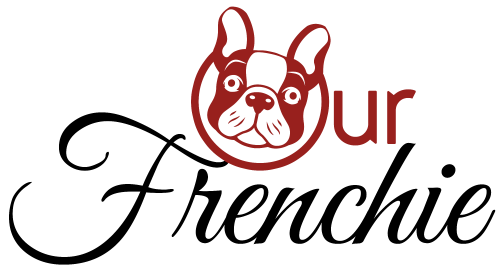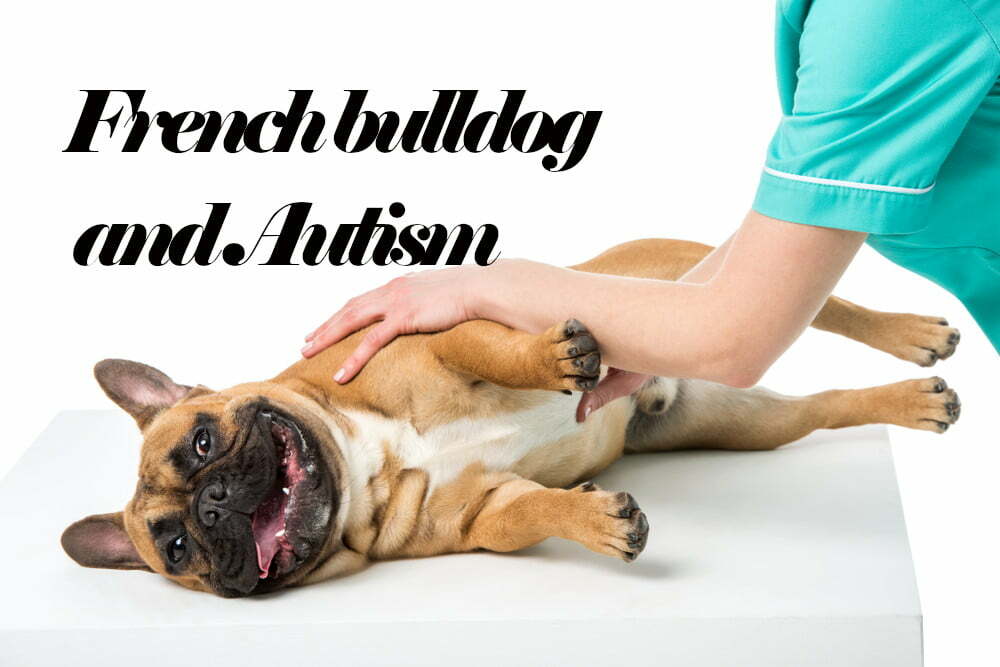Health & Care
Can French Bulldogs Have Autism?
Page Contents
What is Autism and can Dogs experience?
In relation to humans, when a person has an impairment in social interaction and language development or communication skills, he is said to have the neurobehavioral condition called autism. For any suggestive behavioral condition to be classified as autism, it must be rigid and repetitive.
A child with autism has trouble communicating, and understanding what other people think and feel, which makes it difficult for the person to express himself or herself by words, gestures, facial expressions or touch.
Research reveals that dogs can experience a similar behavioral condition. Hence, whether or not dogs can truly have autism is becoming one of the most frequently asked questions.
This inquiry came into prominence in 1966, when Veterinarians were engaged in conferencing on whether symptoms of autism can occur in dogs. It was similarly reported in a 2015 investigation by the American College of Veterinary Behaviorists, which studied tail-chasing behavior in Bull Terriers and a possible link to autism.
Other similar studies further indicate that Dogs can have autism. However, one must be cautious to assert that because none has established Canine Autism with absolute certainty. Also, considering the fact that a number of other difficult-to-diagnose canine conditions such as anxiety disorder and pain, can cause clinical signs similar to those associated with autism, at best, we can say that dogs MIGHT have autism.
There are two criteria on which Autism Spectrum Disorder (ASD) is based, thus:
- Impairments in social communication and social interaction.
- Restricted, repetitive patterns of behavior, interests, or activities.
Signs and Symptoms of French Bulldog Autism
For a French bulldog to be tentatively diagnosed with autism, he or she should exhibit atypical repetitive behaviors and some degree of impaired social interaction with dogs and/or people. Also, a veterinarian must first rule out other conditions that might be responsible for the observed clinical signs.
Hence, in order to know whether your French bulldog has an impairment in social communication and social interaction, look out for the following:
- Failure to respond to his name or if he is not able to hear you all the time;
- If the Frenchie retreats to a world of his own, i.e., he resists cuddling or you holding him and prefers playing alone;
- He doesn’t make any facial expressions and avoids durable eye contact with you;
- Dog doesn’t understand simple questions or instructions;
- He doesn’t seem to express emotions or feelings, and is kind of ignorant to other people’s feelings too;
- Your Frenchie is inappropriately approaching a social interaction by being passive, aggressive or disruptive.
To determine whether your French bulldog has restrictive and repetitive behavior, interests or activities, again, pay attention to the following:
- He/she begins to do repetitive movements or activities that could cause him/her harm;
- If your French bulldog is developing any specific habits or routines and becomes disturbed at the slightest change;
- Has a strange, stiff or overstated body language, or other types of uncoordinated and strange movements;
- If he shows signs of lack of cooperation or resistance to change;
- He starts moving constantly;
- If he becomes abnormally sensitive to light, sound, and touch, yet unconscious of pain;
- He is no longer sensitive to imitation or evasion games.
The dog may become obsessed with an object or activity with abnormal intensity or concentration.
The Frenchie may also have strange preferences when it comes to food. For example, he may only eat a few foods and only eat foods with a certain texture.
These signs will appear from the very beginning of your Frenchies lifestyle. As we have already said, it is a congenital disease that they inherit. You can see that your pet has problems like a puppy, which makes the training process much easier. In case you have a suspicion of autism in your French bulldog, look for these symptoms. Many previous symptoms will lead to increased lethargy. Disabled dogs prefer to lie down all day rather than go out or play. They will show too little interest in what surrounds them. This could be alarming, especially if your dog is a strain known for its high energy.
Remember to follow a timetable
Canines are intelligent animals, whether autistic or not. As a result, you can expect your dog to understand reasonably quickly the way work is done. If you stick with this time throughout your pet’s life, he will thrive. This routine provides a dependable cover for autistic pets. They will understand what to do when they do it as well as the expectations.
How to Manage Autism in French Bulldogs
The first stage in the management of autism in French Bulldogs is to prevent stuff which leads to an outbreak of abnormal conduct. This implies that you should identify the causes.
When you’ve been approached by strangers at the dog park, for example, if your Frenchie is scared and confrontational, you don’t go into the dog park and follow a silent path, in the other way.
Again, attempt to adopt certain steps for pets with unique requirements, such as the use of certain commercially accessible coats to reassure the body, if the causes are not avoidable.
Some operations also assist people suffering from schizophrenia. One is weighted dragging.
You can teach your pet to do some hard job such as wearing smooth, doggy backpacks.
More research is currently being carried out by a consortium of medical practitioners and institutes under the theme: “Canines, children, and autism: the decoding of obsessive comportament at canines, and child autism, and more definite answers are to be hoped for in the nearest future. Did your Frenchie demonstrate any of the above signs or symptoms?
Conclusion
As humans, dogs are creatures that can suffer from autism. A veterinarian should be consulted for further analysis if your dog has symptoms. Possessing a French bulldog with autism can be challenging, especially if it doesn’t have the same level of affection as you. It is essential that you remain stronger and that you are there to help your dog. With some minor modifications, you could make your home a safe place for your dog to thrive. Paralysis of the dog is the result of an interruption in communication between the spinal cord and the brain.

